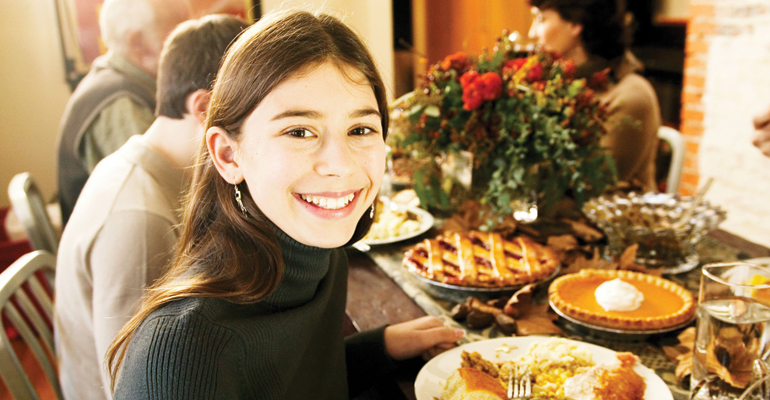Many of us travel to see — or host — far-flung relatives for the holidays. Relationships with extended family are influenced by a number of factors, including geographical proximity, individual personalities, and perceived commonalities. Adoptive parents may worry about their relatives’ acceptance of the way they formed their families, and want their children to feel unconditional belonging. When our children are younger, we can pay close attention to their interactions with relatives. As our kids become teens, we are less privy to their conversations with Uncle Robert.
Understanding Differences
The primary task of adolescence is to figure out your identity, to look at parents and other family members and determine how you are similar to and different from them. All teens grapple with what to do when they discover differences between their values and beliefs and those of extended kin — for example, around politics, religion, or social issues. Differences that are related to adoption can feel especially divisive. The grandfather who tells his grandson that he is American, not Korean, may be stepping on an emotional landmine.
We tell our children that their adoption story is theirs to share. Some teens share more than others, of course, and cousins and other family members who do not understand adoption may misread reticence as a sign of distance. Thinking they were close, Steven’s cousin Diane was put off when Steven didn’t want to answer questions about his birth mother. Steven, 13, didn’t want to lose Diane’s friendship, and wound up disclosing more than he wanted to. After the visit, he sent her an angry e-mail, which she showed to her parents. Later, Diane understood how Steven felt, and they patched things up.
Open adoption relationships can be particularly confusing for relatives. They may feel protective of the adoptive parents and see birth parent contact as a threat to them. After Ginny’s maternal grandmother expressed disapproval about her spending so much time with her birth family, Ginny, 14, began to refuse to go to her grandparents’ house for Sunday dinner. Ginny’s parents thought it was just adolescent rebellion. Finally, they discovered what had happened and interceded. Ginny’s mother reassured her mother that Ginny’s contact with her birth mother did not take away from their own mother-daughter relationship.
Highlighting Similarities
Parents can counteract the adolescent tendency to dwell on differences by continuing to highlight similarities between their teens and extended family. Saying, “You are athletic, just like Uncle Mike” or “You and your cousin are both interested in teaching children” can go a long way to help a teen reconcile feelings of loss and feel grounded in her family.
Marla, 17, had much in common with her paternal Aunt Leslie — they were both artistic and enjoyed similar kinds of music. During one visit, she told her aunt about her desire to meet her birth mother. Marla, like many teens, was more willing to open up about certain matters to adults other than her parents. And her parents were glad that someone within the family was able to fulfill this role.

